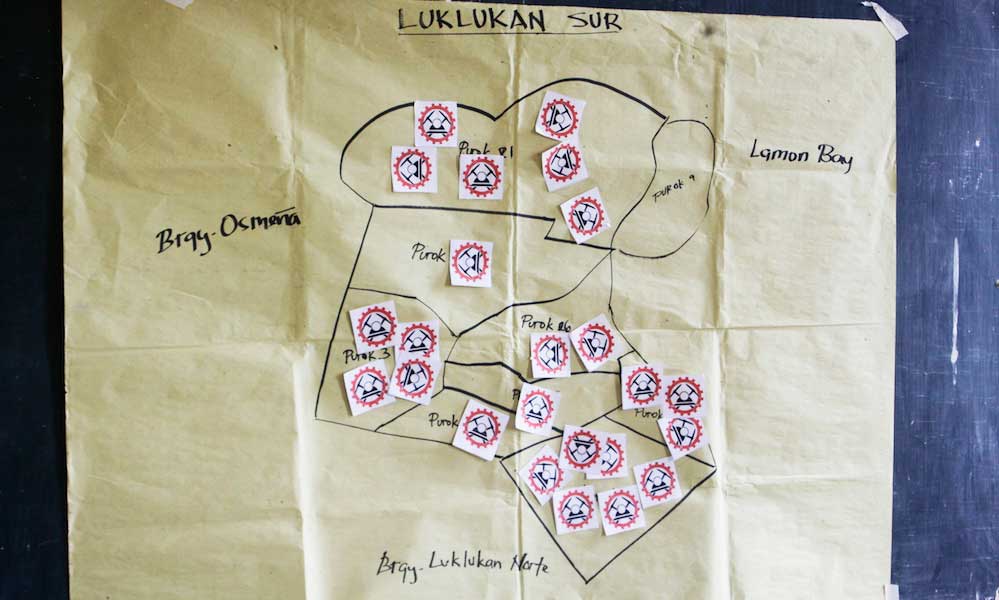
Luklukan Sur, in the municipality of Jose Panganiban, is a gold rush mining town in Camarines Norte. Gold has been mined here since the Spanish period, and several foreign companies have operated gold and iron mines in the town’s vicinity in the last century. Today, the town is home to around 5,000 people and more than 30 mines. (c)BAN Toxics/L Guerrero
Anne (not her real name), 17, lost her father when she was 13. Her father was stabbed and killed in a case that remains unsolved to this day. She wants to finish school but had to stop studying at the local elementary school when her father died. Her family couldn’t afford to send her to high school which was in the next town. It would cost 100 pesos each day just for food and transportation. She says many children in their town face the same problem.
Anne lives in Luklukan Sur, a small mining town of around 5,000 people tucked away in the remote mountainous coasts of Jose Panganiban, Camarines Norte. The town is rich in gold. Eight of the town’s nine sitios (hamlets) have active gold mines. According to town elders, people in the past didn’t have to dig tunnels to find gold—the top soil was rich with it. Today while gold is harder to find, gold mining remains the most important—and some say the only—industry in town.
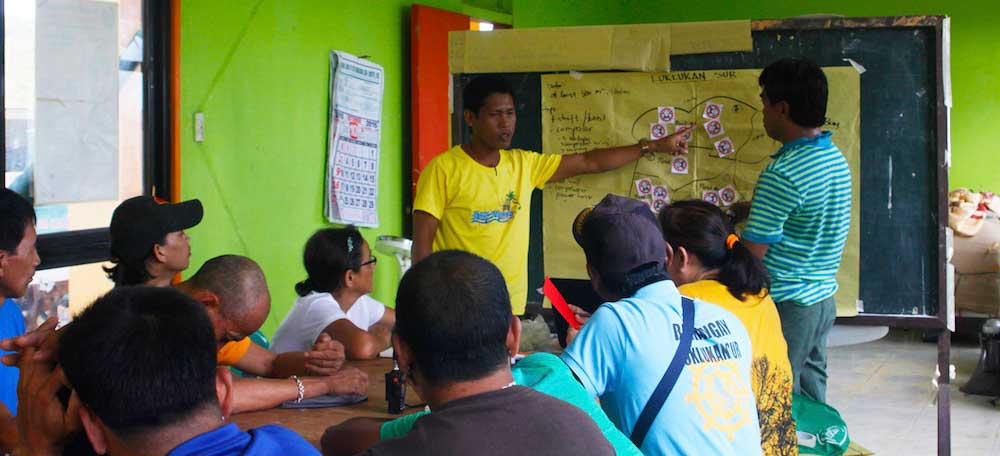
Rolly Cervantes Luklukan Sur’s Barangay captain (town chief) participates in a miners’ meeting conducted by BAN Toxics. (c)BAN Toxics/L Guerrero
Residents estimate that their municipality has around 30 gold mines, each with its own network of tunnels. Around 800 families in the barangay are estimated to be involved in artisanal and small-scale gold mining.
But, as with many other mine sites in the Philippines, most of the people are poor. In Anne’s town less than half the students pursue high school because of the costs involved. Many children end up working in mines although child labor is prohibited by national law.
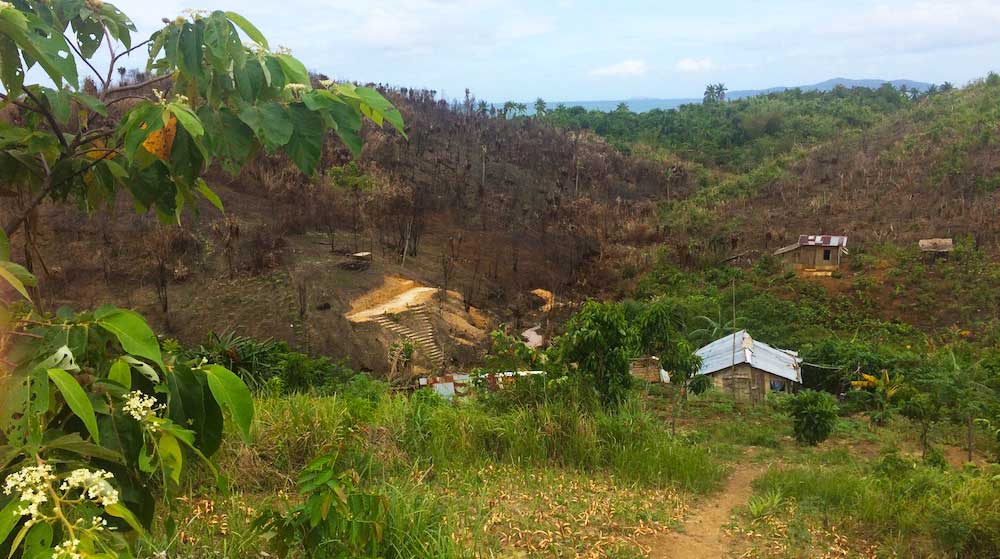
A view of some houses in the hillsides of Luklukan Sur. Most of the houses are located along the main road and in the town center. (c)BAN Toxics/L Guerrero
For now, Anne is resuming her studies through the Alternative Learning System. ALS is a government-offered alternative to formal education for youth who can’t access formal schooling because they may be working or have families.
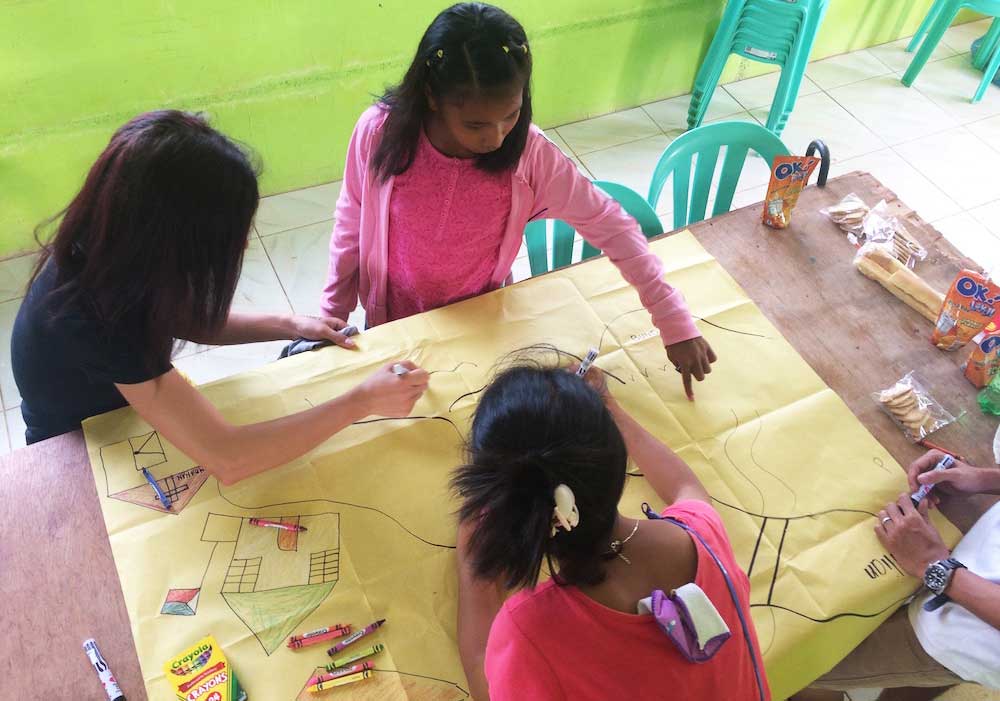
Anne (foreground) and her schoolmates at the local Alternative Learning System draw a map of their town during an activity conducted by BAN Toxics. (c)BAN Toxics/L Guerrero
Classes in Luklukan Sur are held at the town hall amid the clanging of the adjacent rod mill where several mills crush and process gold-bearing ore together with poisonous mercury. Beside it is a cyanide plant where gold is further processed.
Behind the town hall one can see what seems to be a picturesque lake. The lake is actually a cyanide tailings pond. Fumes from the pond as well as from the mills where gold is amalgamated with mercury, are noxious.
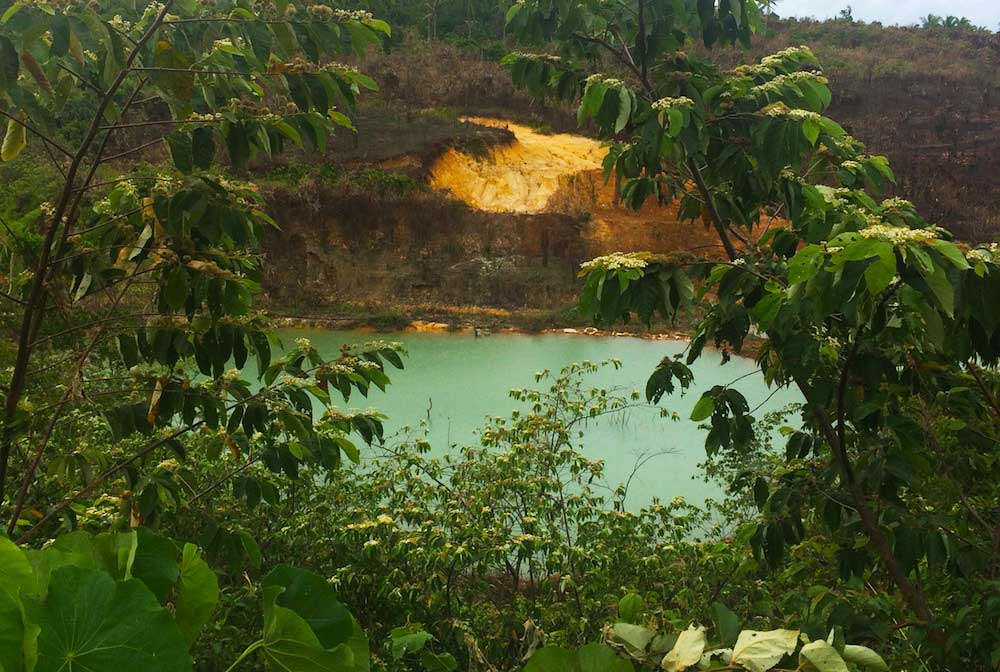
Picturesque? This cyanide tailings pond is located beside the town hall. A big ore processing facility (not in photo) is located a few meters to the left. The facility operates daily and as is common in Camarines Norte, makes use of mercury when milling ore. Artisanal and small-scale gold mining is the primary source of toxic mercury emissions in the Philippines. (c)BAN Toxics/L Guerrero
But for residents and for children like Anne who have lived their whole lives around mines, this life is normal. Many of them have grown up playing around mine sites and learning to pan for gold even at an early age of six. Some youth are able to get paid work doing various jobs in mines to augment their family’s income.
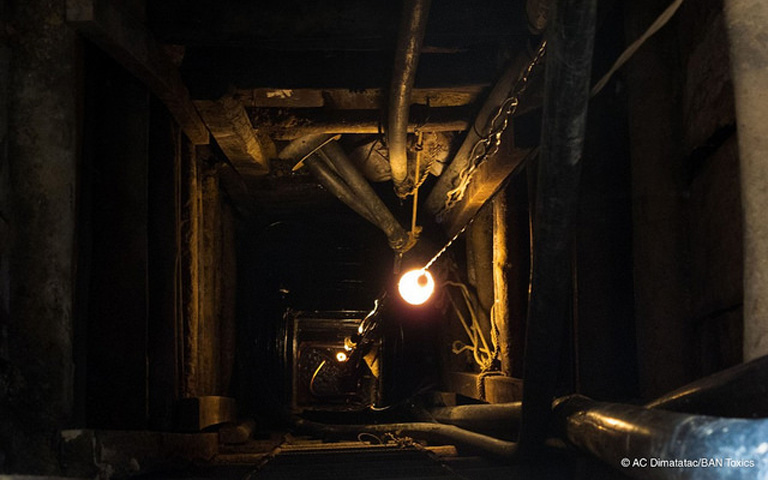
A typical mine tunnel in Camarines Norte. (c)AC Dimatatac/BAN Toxics
Mining, however, is heavy work—and the liberal use of mercury during panning and milling, and the release of mercury fumes when amalgam is burnt—poses irreversible health risks to children. But the lack of finances is a real problem, preventing children from staying in school. Children can’t go to school so they end up working—and working, unfortunately, only serves to keep them out of school.
My dream is to finish my studies and open a business,” Anne says. What may be the normal course of life for other teenagers is only a dream to her, something that she would only be able to do if she won a million in the lottery.
“I also want to help others in need,” she adds. She wants to help make her town a better place. It may be a dream for now, but with proper support, life can be better for miners and their children in Luklukan Sur.
BAN Toxics works in communities such as Luklukan Sur in Camarines Norte to promote mercury-free artisanal and small-scale mining methods, build local capacity and organize community members, women, and children.
We involve communities in advocating for lasting solutions and overall improvement of their areas. By directly working with communities, change and lasting solutions to problems and challenges can be achieved.
